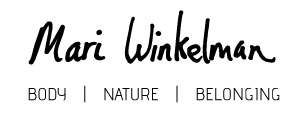 I’m writing about touch, because it fascinates me how complex is the felt and imagined experience of physically connecting to ourselves and others. It is my own wish to simplify understanding of and through my work, to share nurturing touch with others; to empower more of us to care for ourselves and others with touch.
I’m writing about touch, because it fascinates me how complex is the felt and imagined experience of physically connecting to ourselves and others. It is my own wish to simplify understanding of and through my work, to share nurturing touch with others; to empower more of us to care for ourselves and others with touch.
I would like to promote the value of being curious, no matter what our experience, to begin a quest to reconnect to our bodyselves, and to open the channel of communication through touch. Receiving touch from ourselves and/or trusted others is hugely influential in our wellbeing, from expressing love or relieving stress to diagnosing and healing ailments. Deane Juhan, a massage and bodywork practitioner of professional repute in USA states in his book, Job’s Body [1] that touch is ‘food’ for the body. Wow, no wonder that it feels so nourishing to be touched in a way that we like and can influence how we feel in ourselves – just like a good meal! From the moments when we contact the womb wall as a foetus to the end of our lives, we are influenced and we develop physically, psychologically, emotionally through our tactile relationships with people, Earth, human creations and all life.
Our bodies are the physical expression of our inner conditions, our energy and biological processes that are in constant relationship with our environments and each other. How much of this relationship are we actually aware of in any moment? Research shows we are aware of very little because what we tend to relate to is that which we can see, hear and think about. So much of what are bodies are immersed in is not thinkable! Of course we think a lot, sometimes positively, sometimes negatively, and we desparately want to control our bodies in many ways so that we can fit in with our society and lead productive lives. Many of us like some aspects and dislike some aspects of ourselves and this often plays out in our physicality (body/movement/behaviour/health). We might try to alter our physicality for cosmetic or health reasons. Many of us think and feel we’re well enough, okay enough with ourselves, and don’t need to know any more or change anything.
Plus, at times, (for some of us, all the time) our bodies can give us overwhelming feelings, disease or injury which cause us to feel pain and we don’t like that. So these are some of the reasons we might not like to touch in to our bodies, nor to accept that they are expressing who we are.
However, it is certainly possible to increase our ability to receive our bodies’ signals and understand the processes that are going on if we learn how to focus and notice more subtle embodied experiences. Touch gives us recognition of familiar and unfamiliar textures, movements and forms in our environments, helping us to orientate ourselves to what we need and where we need to be. We can also seek this information from touch contact with our bodies and learn to recognise signals and physiological changes which call us into response.
Remedial touch like massage can support tissue softening and fluid movement; giving and receiving attention to ourselves through self-touch can elevate our sense of wellbeing because the ‘bonding’ hormone oxytocin is produced in this physical contact; sharing touch with others can also generate oxytocin as well as enhance our self confidence and sense of identity amongst others. Physical contact is at the heart of most kinds of relational behaviour from very early stages of life, as various qualities of touch can give unspoken messages between people, communicating feelings, boundaries and playful intention as well as evoking sensual pleasure for which it is hard to find words.
However, some of us have never experienced touch as a bonding or supportive experience. Experiences of invasive or abusive touch are harmful and cause stress hormones to be produced, and if we are traumatised, this can sometimes result in chronic body symptoms. Instances of abuse can set us up to fear touch, and in fact our collective societal experiences of abusive touch have led to a backlash, when policy makers respond to fear by prohibiting many forms of touch in our caring and educational professions.
So touch is a powerful experience with a lot of meaning attached to receiving and not receiving tactile experiences.
Having been educated (training with Linda Hartley, [2] Penny Collinson, Amanda Williamson [3] and others) about the ways in which nurturing touch supports our ability to inhabit our bodies and relate to ourselves and others, my intention is to teach and support people to learn to touch themselves with intention to enquire, to care for and to accept themselves in order to cultivate embodied awareness. This will enable them to ‘tune in’ to bodymind, to enable them to discover their needs, and to learn how to meet their needs. Touch can be so powerfully healing when we can move through anxiety, numbness, not knowing, boredom and distraction and just remain aware, present with ourselves in our bodies for the sake of a few moments of exchange with ourselves. When people have done this practice for themselves, they may realise they are able to share touch with others, with much more awareness and understanding of the meaning it has for them and for the other.
[1] Juhan, D. 2003. Job’s Body A Handbook for Bodywork. 3rd Ed.
[2] Founder of Institute for Integrative Body and Movement Therapy – visit www.ibmt.co.uk for details
[3] Course leaders on the MA in Dance and Somatic Wellbeing taught at UCLAN, Preston, Lancs.


